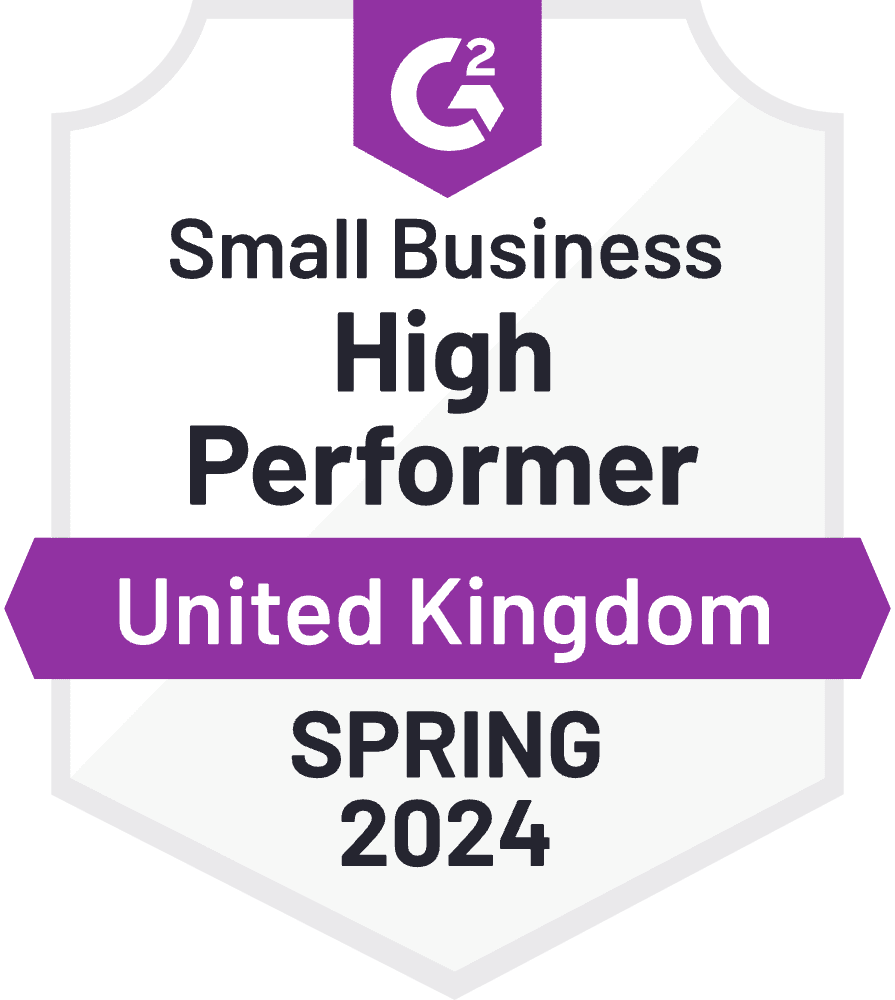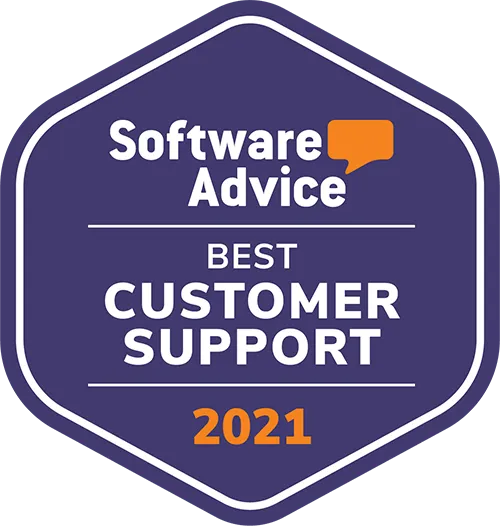It wasn’t a hard choice to select SmartSurvey. Not only did they understand what we were looking to achieve right from the start, they presented a solution that represented everything we needed.
Follow-Up Questions
Follow-Up Questions


Surveys are indispensable tools for gathering feedback, whether you're gauging customer satisfaction, trying to understand employee morale, or conducting market research for a new product or service.
However, the real value often lies not just in the initial question types but in the follow-up questions that dig deeper, providing richer insights and more actionable data. Let's explore what follow-up questions are, why they matter, and how to craft them effectively...
Benefits of using follow-up questions
Enhancing data quality
Follow-up questions help to clarify initial responses, ensuring you capture accurate and comprehensive data. By asking respondents to elaborate, you reduce the risk of misinterpretation and gain a clearer picture of their thoughts and experiences.
Providing clarity and context
Initial answers often lack context. Follow-up questions bridge this gap, offering insights into the reasons behind a respondent’s answers. For example, understanding why an employee feels disengaged can lead to targeted interventions that address specific issues.
Identifying areas for improvement
Detailed follow-up questions can pinpoint specific areas needing improvement. Whether it’s a product feature or a service aspect, knowing the exact problem enables more effective solutions.
Increasing respondent engagement
When respondents see that their feedback leads to further questions, they feel heard and valued. This increases their engagement and willingness to provide more detailed and honest responses.
Types of follow-up questions
Open-ended follow-up questions
An open-ended question encourages the respondent to provide detailed, free-form answers. For example, "Can you tell us more about your experience with our customer service?" invites a thorough response that can reveal valuable insights.
Clarifying questions
Clarifying questions seek to ensure understanding. If a respondent indicates dissatisfaction, a question like, "Could you specify what aspects you were unhappy with?" helps to pinpoint the exact issues.
Probing questions
Probing questions delve deeper into specific points. For instance, "You mentioned delays in delivery. Can you describe how this affected your experience?" uncovers the broader impact of a particular issue.
Elaborative questions
These questions encourage respondents to expand on their answers. An example is, "You rated our product as 'good.' What features stood out to you, and why?" This type of question provides a fuller understanding of the respondent's positive rating.
Reflective questions
Reflective questions ask respondents to consider their previous answers in a broader context. For example, "How do you think our product compares to similar ones you've used?" This helps to gauge competitive positioning.
Techniques for effective follow-up questions
Using branching logic
Branching logic allows you to tailor follow-up questions based on initial responses. For example, if a respondent indicates dissatisfaction with a product, they can be directed to a series of questions exploring the reasons behind their dissatisfaction. This personalised approach improves the relevance and quality of the data collected.
Leveraging Likert scale responses
The use of Likert scale questions (e.g., strongly agree to strongly disagree) provide a quick measure of sentiment. Follow-up questions based on these responses can probe deeper. For example, "You strongly disagreed that our product is user-friendly. Can you describe specific difficulties you encountered?"
Implementing matrix questions
Matrix questions combine multiple related questions with the same set of answer options into a table format. This is efficient and makes it easy to compare responses. Follow-up questions can then target specific rows or columns for more detailed feedback.
Employing slider questions
Slider questions allow respondents to indicate their position on a continuum. Follow-up questions can ask for explanations of their chosen position. For example, "You rated our service as 7 out of 10. What factors influenced your rating?"
Follow-up question examples
Customer surveys
When you survey customers you get to delve deeper into their experiences to identify specific areas of improvement and what they truly value. Here are some sample follow-up questions to illustrate how these might add value.
Satisfaction with specific product features:
- "Which features did you find most useful and why?"
Reasons for dissatisfaction or low ratings:
- "You rated our product a 2 out of Can you explain what led to this rating?"
Suggestions for product improvement:
- "What improvements would you like to see in our product?"
Likelihood of return or recommendation:
- "What factors would influence your decision to return or recommend us?"
Comparison with competitors:
- "How does our product compare to others you have used?"
Customer service experience:
- "Can you describe your experience with our customer service team?"
Employee surveys
HR professionals use a variety of staff surveys to gain insights into staff members' perspectives on workplace culture, management, and opportunities for growth. Below are a few sample follow-up questions to demonstrate how these can enhance this data collection.
Feedback on workplace culture:
- "What aspects of our workplace culture do you find most positive?"
Professional development opportunities:
- "What additional training or development opportunities would benefit you?"
Management practices:
- "How do you feel about the support you receive from management?"
Work-life balance:
- "How satisfied are you with the work-life balance provided?"
Team communication:
- "How effective do you find communication within your team?"
Job satisfaction:
- "What factors contribute most to your job satisfaction?"
Healthcare surveys
By distributing healthcare questionnaires, health professionals better understand patients' experiences in greater detail, and so enhance the quality and delivery of care. Here are some examples of related follow-up questions to show how they can provide added value in your research.
Patient experience with medical staff:
- "How would you describe your interactions with our medical staff?"
Clarity of treatment information:
- "Did you feel you had a clear understanding of your treatment options?"
Areas for improvement in care facilities:
- "What improvements would you suggest for our care facilities?"
Overall satisfaction with care:
- "What aspects of your care were most satisfactory?"
Timeliness of care:
- "How would you rate the timeliness of the care you received?"
Likelihood of recommending the facility:
- "How likely are you to recommend our facility, and why?"
Market research surveys
The use of online market research to explore consumer preferences and behaviours more thoroughly, and so to refine products and marketing strategies, is well-established. Here are some example follow-up questions that could feature in surveys to deepen insights.
Consumer preferences and buying habits:
- "What factors most influence your purchasing decisions?"
Comparisons with competitor products:
- "How does our product compare to those of our competitors?"
Satisfaction with product quality:
- "What aspects of our product quality stand out to you?"
Likelihood of repeat purchase:
- "How likely are you to purchase from us again, and why?"
Brand perception:
- "How do you perceive our brand compared to others in the market?"
Advertising effectiveness:
- "What aspects of our advertising caught your attention?"
Citizen engagement surveys
We are seeing growing use of citizen engagement software to gather comprehensive feedback from the public, used in order to better address community needs and enhance public services. Below are just a sample of follow-up questions to illustrate how they can boost the value of this feedback.
Satisfaction with public services:
- "Which public services do you find most satisfactory, and why?"
Suggestions for community projects:
- "What community projects would you like to see implemented?"
Feedback on local government responsiveness:
- "How would you rate the responsiveness of our local government?"
Public safety concerns:
- "What are your primary concerns regarding public safety?"
Recreational facilities:
- "How do you feel about the availability and quality of recreational facilities?"
Community events:
- "What types of community events would you like to see more of?"
Hospitality surveys
Covering a broad industry sector, hospitality feedback forms are employed to capture detailed guest feedback, which in turn is used to improve services, amenities, and overall satisfaction (whether with an experience or a destination). Here are a few follow-up question examples to highlight how these can add meaningful value to your survey results.
Guest experience with accommodation:
- "What aspects of your accommodation did you find most comfortable?"
Service enhancement suggestions:
- "What services or amenities would improve your stay?"
Staff friendliness and helpfulness:
- "How would you rate the friendliness and helpfulness of our staff?"
Cleanliness and comfort:
- "How satisfied were you with the cleanliness and comfort of your room?"
Likelihood of recommending the establishment:
- "How likely are you to recommend our establishment, and why?"
Overall satisfaction with stay:
- "What factors most contributed to your overall satisfaction with your stay?"
Event surveys
Whether run before, during, or after, event surveys allow organisers to uncover the attendee insights they need to improve future events and deliver experiences that exceed expectations. Consider these sample follow-up questions to understand how they can contribute valuable insights.
Feedback on event organisation:
- "How would you rate the overall organisation of the event?"
Sessions or speakers that stood out:
- "Which sessions or speakers did you find most valuable, and why?"
Venue and facilities:
- "How satisfied were you with the venue and facilities provided?"
Suggestions for future events:
- "What improvements would you suggest for our future events?"
Networking opportunities:
- "How effective were the networking opportunities at the event?"
Overall event experience:
- "How would you describe your overall experience at the event?"
Concluding thoughts
Follow-up questions are a powerful tool in the survey process, transforming surface-level responses into detailed, actionable insights. By asking the right follow-up survey questions in the right way, you can greatly enhance the value of your data, uncover hidden trends, and make more informed decisions. Whether you're conducting customer surveys, HR surveys, or any other type, understanding how to ask follow-up questions effectively is key to getting the most out of your surveys.
Incorporate these strategies and examples into your survey design, and you'll be well on your way to collecting more meaningful and useful feedback. Remember, the art of follow-on questions lies in their ability to deepen the conversation and uncover insights that might otherwise remain hidden.
How are we different?
UK based
Your data will be stored and processed here in the UK for your peace of mind.
Fanatical support
We pride ourselves on going above and beyond for our customers, providing expert advice and support whenever you need it.
You're in safe hands
Our secure platform and robust data protection measures ensure your data is safe and secure with us. We are ISO27001 and Cyber Essentials Plus certified.
We're human
We understand the importance of personal interaction, which is why we offer a human touch alongside our cutting-edge technology.
Accessibility matters
We're committed to making our surveys accessible to everyone, with a range of features to support those with disabilities.
Unlimited responses
With no limits on the number of responses you can collect, you can be sure your survey will reach as many people as possible without it being cost prohibitive.

Don’t just take our word for it
Over 500,000 users have registered to use SmartSurvey.


We couldn't be happier with SmartSurvey, we love its functionality and flexibility. This means we have been able to use one survey tool across many parts of the business.








Get in touch
We are ISO27001 certified, registered under the Data Protection Act and fully compliant with EU Privacy Laws.
Access to a knowledgeable account manager for personal assistance for when you most need it.
Our friendly design team is on hand to assist with any bespoke design and custom development requests.
We succeed if you succeed. Our goal is to help you carry out effective research and we’re here to help you achieve that.
